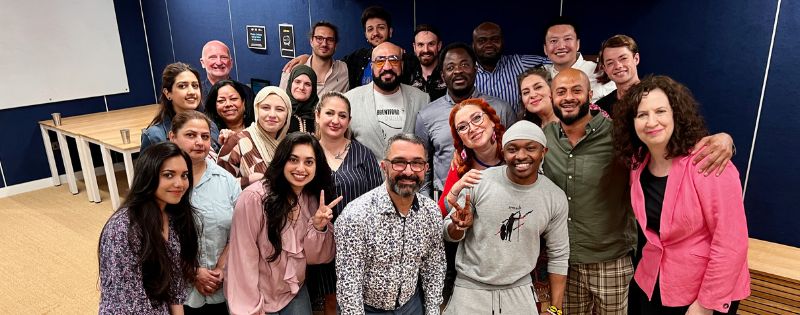
Hormoz and Jane discuss the recent negative shifts in attitudes to diversity in some quarters. How have these happened and why is Result’s work now even more important?
Hormoz: Have you noticed the changes recently described by some of our key contacts who lead work on diversity and inclusion?
Jane: Yes I have. They seem to feel they have to ‘keep their head below the parapet’ and cannot celebrate their achievements and successes. It is so sad.
Hormoz: I find it disturbing and also frustrating that hard-won progress in this area seems to now be going backwards. As a previous refugee myself I find the current environment in the UK implying that desperate people seeking refuge are mainly criminals and spongers particularly disingenuous. In my experience this is as far from the truth as possible. Our current Ideas into Action programme has involved us working with refugees who have great ideas for starting their own businesses. As we both know, they are an exceptional group of individuals whose work will benefit us here in the UK and beyond.

Jane: Good point. I feel that the lazy (and ungrammatical!) use of the term 'woke' to denigrate vast swathes of society is based on a primal fear of difference. And the paradox is that we need difference because it helps and has always helped us to thrive as a species. Playing a blame game by pointing the finger at people who are different in some ways is not only self-defeating, it's also bad for the country and the economy.
Hormoz: A recent government paper shows that 'skilled' refugees are contributing at least £1 million per year to the UK economy. I am sure that the potential boost would be far greater if e.g. the main unprocessed asylum seekers were permitted to work helping boost their self-worth and confidence.
Jane: I agree. Sometimes it can help perspective on a question to try to look at it from the opposite angle to see if it feels logical. If you do that and ask, 'Why should we exclude people from organisations or society?' (rather than 'Let's not include them and let's criticise inclusion as a concept) – it simply doesn't make any kind of sense, does it?
Hormoz: No. And our work shows so clearly how much everyone has to offer when they are properly heard and supported.
Jane: I have been reading Owen Eastwood's book called 'Belonging'. He talks about how we 'leak energy and focus' if we are placed in an unsafe, hostile environment. That made me think of many of the people we work with from a wide range of backgrounds. If their employers and organisations don't practice inclusion, they can end up putting far too much effort and energy into trying to 'fit in' and hide their differences – whatever they may be, disability, race, sexuality, nationality, or refugee status.
Hormoz: True – and that wastes so much potential.
Jane: I find it frustrating that there is so much discussion about so-called 'productivity' when we don't seem to see the obvious connection with empowering people to contribute. Put simply, when someone has the confidence to be themselves when they feel valued, they will do a great job, feel better about themselves, and inspire others. It's not that complicated!
Hormoz: No, it isn't. I think we are fortunate to work regularly with leaders of organisations who are doing really positive work. There is hope and many people are ready and willing to fight for everyone's right to be treated decently and to feel they belong.
Jane: That is a great message as the incredibly difficult year of 2023 came to an end. Thank you!

We are what we do and we love what we do.